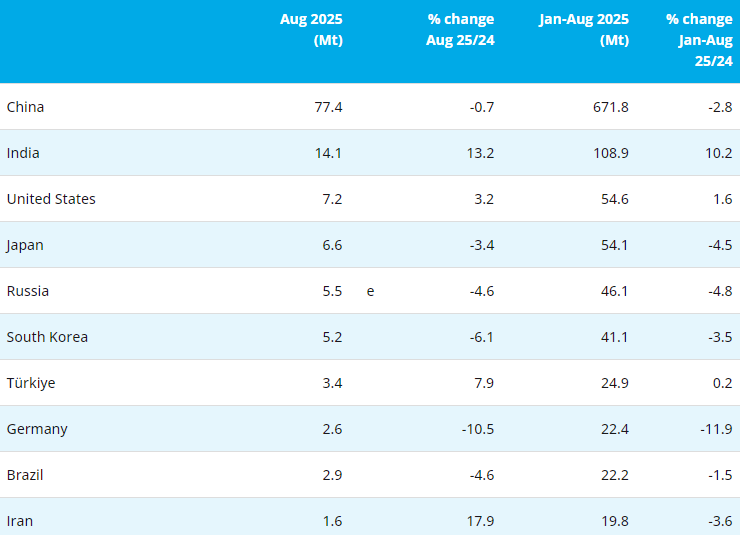【Ferro-alloys.com】The global hydrogen economy will need to quickly scale worldwide electrolyzer capacity in order for hydrogen to meet its decarbonization potential, and that scaling may only be achieved by rejiggering electrolysis technology, hydrogen and electrolyzer producers said during the CERAWeek by S&P Global energy conference.
According to the International Energy Agency, the world had around 300 MW of installed electrolyzer capacity in 2020, with expected capacity to breach 1 GW by 2022. But reaching global net-zero goals will require that amount to ramp up by several orders of magnitude. While the agency projects capacity to rise up to 90 GW by 2030, that rate of growth still falls short of the 850 GW of installed electrolysis capacity needed to meet net-zero emissions by 2050.
"The numbers are getting very, very big, and we need electrolyzer producers to build a lot more capacity," Meg Gentle, executive director of HIF USA, said March 8. "That will be one critical pinch point -- the capacity to actually produce the hydrogen."
Andrew Stuart, CEO of the water electrolyzer manufacturer Hydrogen Optimized, said there are two key innovations that could unlock electrolyzer manufacturing: producing modules with higher power and moving away from reliance on precious metals.
Stuart said his company was focused on tackling the first issue. Whereas electrolyzer manufacturers have been producing single modules that can generate between 10 MW/year and 20 MW/year of power, Hydrogen Optimized has aims to create modules that can produce 400 MW/year. Therefore, a hydrogen producer looking to build a facility with, say, a 2 GW capacity can purchase five electrolyzer modules rather than 100 or 200, Stuart said.
"This simplifies -- this is how you scale electrolysis," he said.
"Our approach is scaling, our approach is multi-GW/year manufacturing," he said. "Technology designed for mass manufacturing."
The second inhibitor to scaling electrolyzer manufacturing is the use of rare earth minerals.
The fastest-growing electrolysis method uses a technology called proton exchange membrane in a process called PEM electrolysis. In 2015, PEM electrolyzers comprised around 10% of global installed electrolysis capacity, according to IEA data. In 2020, it made up a third of total capacity. On March 7, S&P Global priced hydrogen produced using PEM electrolysis at $5.05/kg (including capex) on the Gulf Coast.
But PEM electrolysis has a critical chokepoint in its supply chain. The technology relies on two precious metals -- iridium and platinum -- that act as a catalyst for producing hydrogen. Both those metals "are expensive and rare, offering serious bottlenecks in hydrogen's plans to replace gas worldwide," a 2019 Stanford University study found.
According to Platts assessments from S&P Global Commodity Insights, iridium in North America cost $5,000/toz as of March 8, while Platinum prices were at $1,115/toz. Both commodities have undergone price surges since the beginning of Russia's invasion of Ukraine, and these high price swings are poised to create more supply chain complications as capacity scales into the gigawatt territory.
"The business plans for these companies have to hope that a meteorite of iridium hits planet Earth at their factory in order to get the supply," Stuart said.
The issue around precious metals has been identified by other industry players as well. On March 2, the hydrogen technology company H2U secured $11 million to advance its Catalyst Discovery Engine, which uses artificial intelligence and big data analysis to discover new metals that can be used in lieu of iridium and platinum in the electrolysis process.
"To prevent shortages in critical minerals that would interfere with today's primary pathway for clean hydrogen production, the industry needs to materially reduce or fully eliminate its reliance in expensive, finite and singly sourced rare earth metals," H2U said in its funding announcement.
- [Editor:zhaozihao]



 Save
Save Print
Print Daily News
Daily News Research
Research Magazine
Magazine Company Database
Company Database Customized Database
Customized Database Conferences
Conferences Advertisement
Advertisement Trade
Trade

















Tell Us What You Think